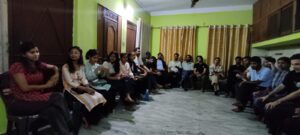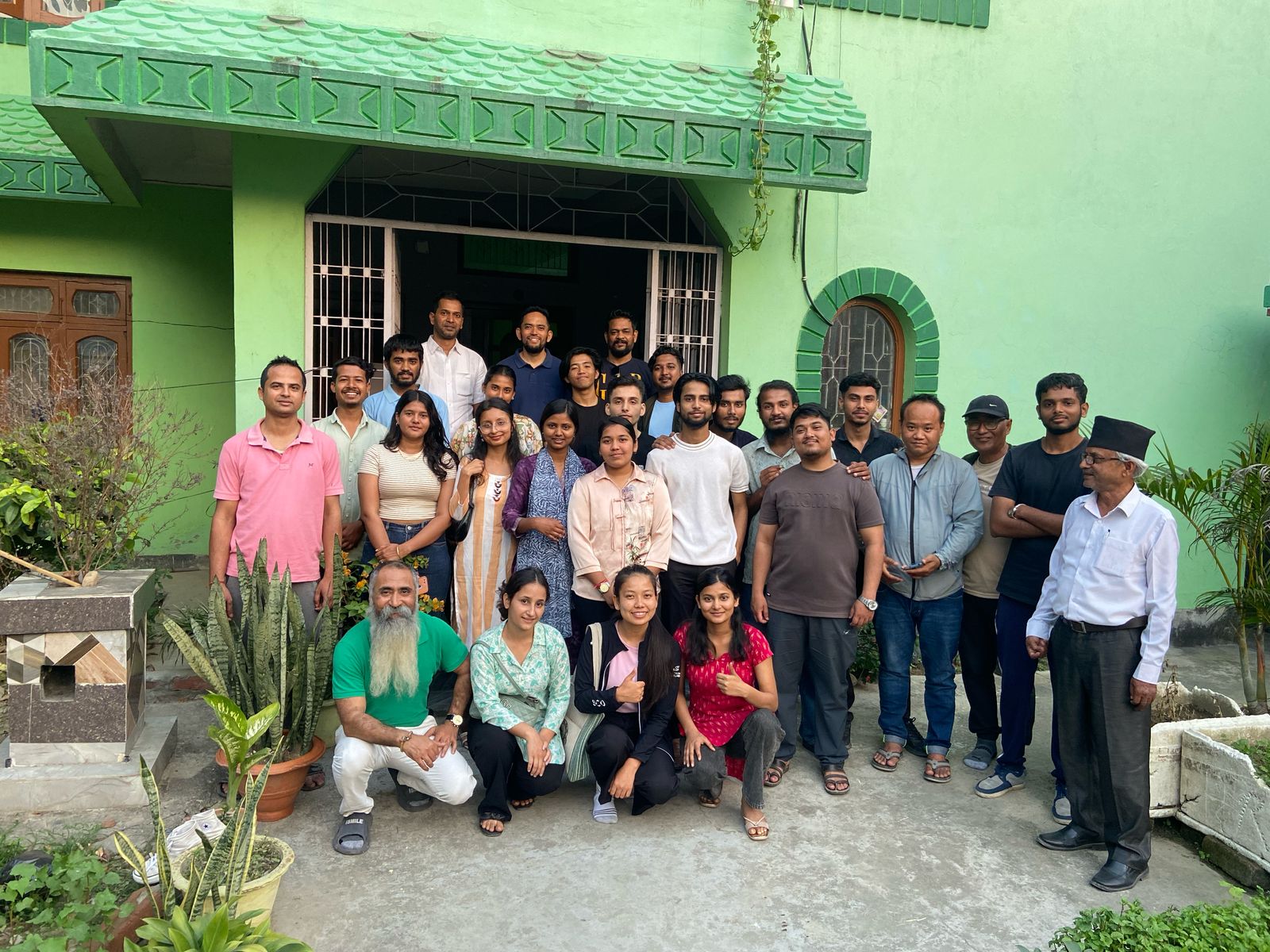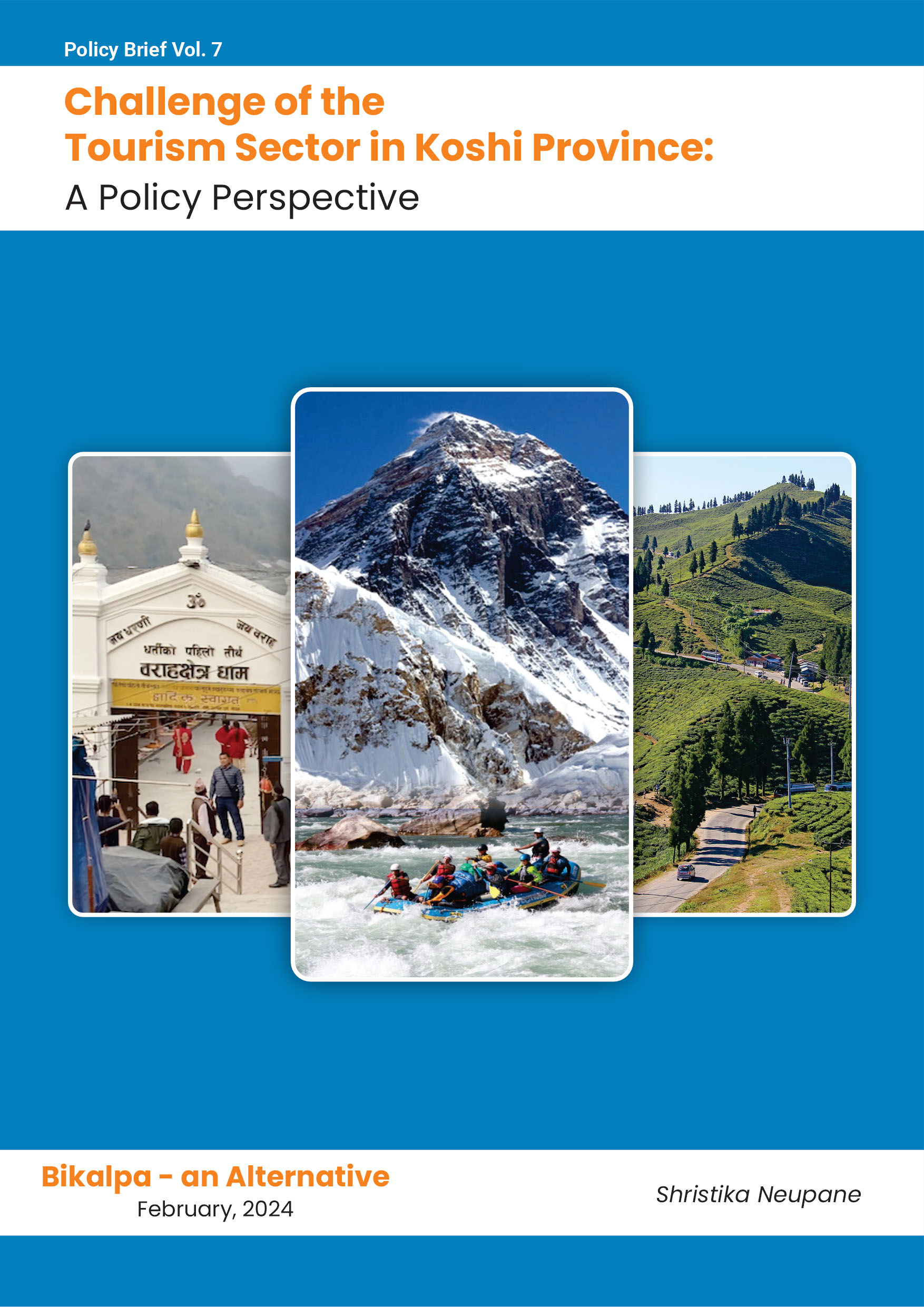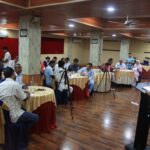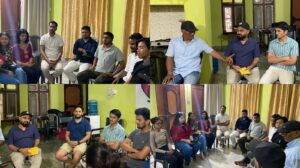The Biratnagar Citizen Campaign organized its scheduled meeting on 29 March 2025 at the premises of Bikalpa an alternative. As per the decision made in the last meeting, campaign members have agreed to convene every 15 days to discuss the further agenda of Biratnagar and the program direction. In that meeting, around 30 people from diverse backgrounds were gathered together. Most of them were YPE and Bikalpa Fellows, and some of them were from media backgrounds, business sectors, and social campaigns.
The session commenced with a warm welcome from Mr. Basanta Adhikari, who greeted all attendees and emphasized the importance of the gathering. He outlined the purpose of the program, highlighting the significance of fostering dialogue, collective problem-solving, and structured planning for the Biratnagar Citizen Campaign’s future. Mr.Adhikari also introduced the participants to one another, setting the tone for an interactive and productive meeting.
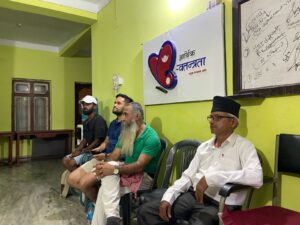
After the introduction, the floor was opened for discussion, allowing participants to share their views on the further program of the Biratnagar Citizen Campaign, but all the members were curious to talk about the recent protest demanding monarchy. The protests were observed to be more aggressive than usual, raising concerns about potential violence and its implications for the stability of Nepal’s democratic system. Participants considered to discuss about the protest to observe the rising momentum behind monarchist sentiments.
The members were engaged in a rigorous discussion regarding the merits and challenges of both governance systems. Aaisma Bista, a YPE Fellow emphasized that Nepal’s transition to a democratic republic was a result of decades-long struggles and sacrifices by the Nepalese people. Another YPE fellow, Nabin Babu Tiwari clarifies, how democracy ensures the representation of diverse voices. He also added that, the right to choose leadership through election so people can choose the best leaders according to them and the ability to hold governments accountable. The principles of freedom of speech, human rights, and decentralization of power were recognized as the main objectives of democracy.
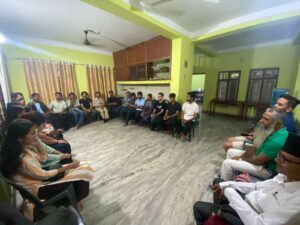
On the other hand, some participants accept that a portion of the population is increasingly expressing dissatisfaction with the current democratic system due to governance failures. Governance failure is the reason when democratic institutions fail to deliver good governance so people become disillusioned. Similarly, corruption and political instability reduce trust in democratic leadership. Some argued that the nostalgia for monarchy is driven by a belief that it could provide stability and national unity, as seen in Nepal’s past. During the discussion, most of them agreed that democracy was upheld as the best governance model, and members also critically analyzed its implementation in Nepal. One of the YPE Fellow, Shistata Bhattrai shared that political corruption, lack of transparency, weak rule of law, and inefficient public services, have led to frustration among citizens.
One of the participants stated that Nepal had revolutions in the past that did not change things for most Nepalese because those who mounted the revolutions simply took over the reins from those who came before them and recreated a similar system. It is very difficult for ordinary citizens to acquire real political power and change how their society works, leading to the rise of king supporters.
In addition, some argue that the rule of law is more important than the system because the rule of law prevents arbitrary power, which limits excessive powers, and a strong legal system attracts investment and ensures property rights. Lack of employment opportunities has created frustration among youths towards the government diverting their productive energy into violent protests. So, members discussed the government’s role in providing employment opportunities and establishing an entrepreneurial culture.
